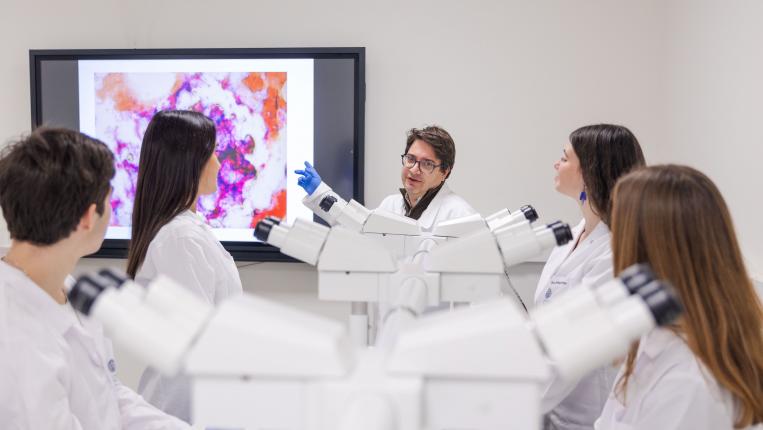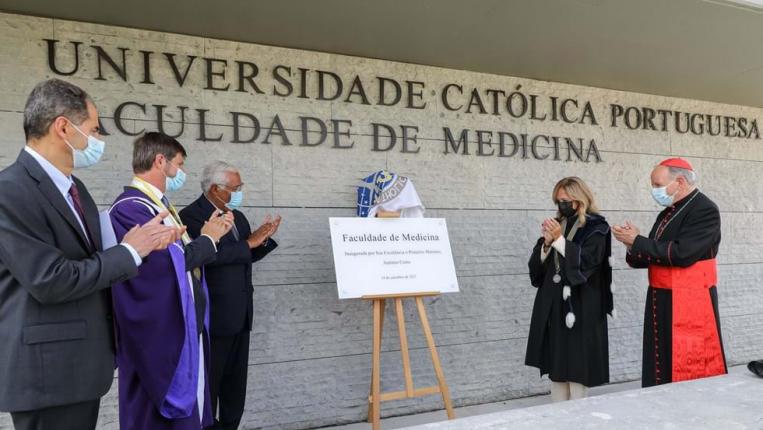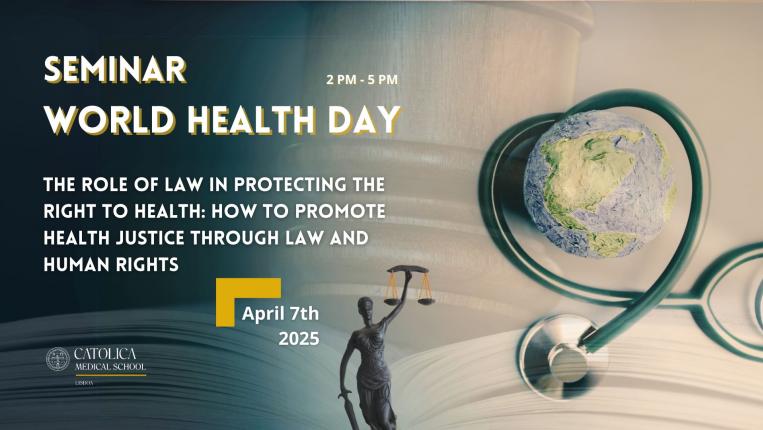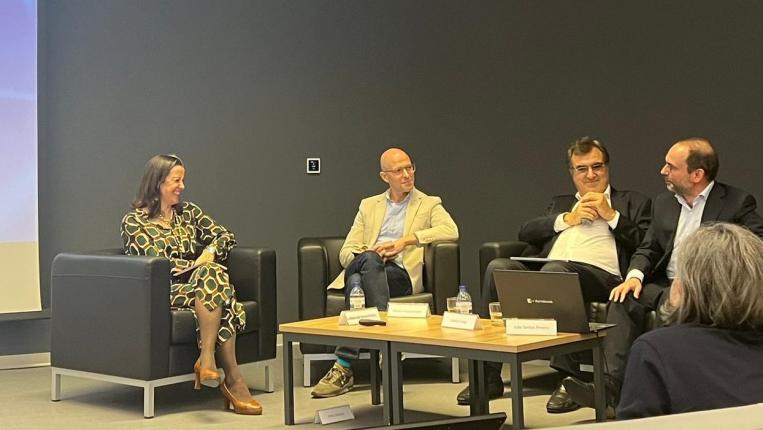On March 21, 2023, at 3 pm, the first meeting on Ethics and Artificial Intelligence in Health took place. It was a joint organization between Católica Medical School, Institute of Bioethics, and the Laboratory of Digital Ethics of the Institute of Political Studies of the Universidade Católica Portuguesa. This meeting was moderated by João Santos Pereira, Innovation Coordinator at UCP.
The first panel was dedicated to the challenges and opportunities of Artificial Intelligence (AI) for medical education, by Pedro Mateus, professor and coordinator of the Department of Medical Education at Católica Medical School, who spoke about the importance of models of education and learning, particularly about the Maastricht model, already in use at Católica Medical School, as well as its added value for the integration of AI tools, with respect for integrity and as elements of training, efficiency and quality. This was followed by Manuela Escumalha, from Hospital da Luz, who brought up the challenges of AI in clinical practice, as a doctor, as well as the ethical tools available for the appropriation of its use in a clinical context. He presented his main concerns, but also the many opportunities that these systems can mean for health.
The second panel began with the expert and coordinator of the UNESCO Chair in Artificial Intelligence and Augmented Reality, Joaquim Jorge, from Instituto Superior Técnico. He brought his vision as a “master builder” of AI, as well as examples of AI tools applied to health, particularly in the field of imaging. William Hasselberger, from UCP Digital Ethics Laboratory, then spoke about the research he has carried out in this area, especially about the construction of algorithms that can incorporate elements of “humanization” of AI systems.
Finally, Mara de Sousa Freitas, from Institute of Bioethics, presented a corollary between the various presentations, highlighting the values and ethical principles that must be in the matrices of the construction and use of AI systems applied to health, whether in education or for the research and practice of medicine. He recalled the importance of involving different entities in this discussion.
In the end, it was underlined that we all have an important role to play in the face of the opportunities generated by AI, as agents and not just as passive recipients. Given the potential of this technology, it is essential that research be carried out ethically and that innovation be based on technologies that respect human rights, as recognized by UNESCO on this matter.
This first meeting was the kick-off of a series of initiatives on Ethics and Artificial Intelligence in Health, to be carried out at Católica Medical School within the scope of the Católica-Luz Clinical Academic Centre, which will be announced shortly.




